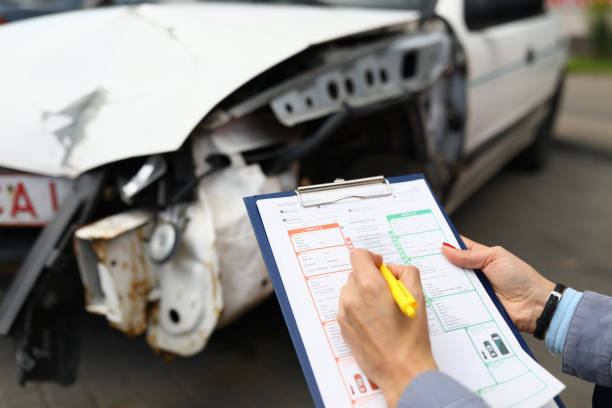Types of Policies and Benefits
Collision Coverage Benefits: Essential Protection for Vehicle Accidents
Collision coverage is a vital component of auto insurance that provides essential protection in the event of a vehicle accident. Whether you’re involved in a collision with another vehicle or a stationary object, collision coverage ensures that you are financially protected. This guide explores the key benefits of collision coverage and why it is an important consideration for any vehicle owner.
1. What is Collision Coverage?
a. Definition and Purpose
Collision coverage is an insurance policy that pays for repairs or replacement of your vehicle after a collision, regardless of who is at fault. This type of coverage is particularly important for protecting your investment in your vehicle and ensuring that you are not left with significant out-of-pocket expenses following an accident.
b. Coverage Scope
- Accident Repairs: Covers the cost of repairing your vehicle after a collision with another vehicle or object, such as a guardrail or a tree.
- Vehicle Replacement: If your car is totaled (i.e., the cost of repairs exceeds the vehicle’s value), collision coverage provides funds for replacing the vehicle up to its actual cash value.
2. Key Benefits of Collision Coverage
a. Financial Protection
- Repair Costs: Helps cover the cost of repairing damage to your vehicle after an accident, protecting you from substantial repair bills.
- Replacement Costs: Provides financial support for replacing your vehicle if it is deemed a total loss, ensuring that you are not left with the full cost of purchasing a new vehicle.
b. Peace of Mind
- Reduced Financial Stress: Offers peace of mind knowing that you have protection against the high costs associated with vehicle repairs or replacement, reducing financial stress after an accident.
- Confidence on the Road: Allows you to drive with confidence, knowing that you are protected in the event of a collision, regardless of who is at fault.
c. Comprehensive Coverage
- Versatile Protection: Covers a wide range of scenarios, including accidents with other vehicles, stationary objects, or even if you roll your vehicle.
- Not Dependent on Fault: Ensures that you are covered for damage to your vehicle regardless of who caused the accident, unlike liability coverage which only covers damage to others.
d. Enhancing Overall Insurance Protection
- Combining with Other Coverage: Collision coverage can be combined with other types of coverage, such as comprehensive coverage, to offer more comprehensive protection for your vehicle.
- Customized Policies: Allows for customization with optional add-ons or higher coverage limits to better suit your specific needs and driving habits.
3. When to Consider Collision Coverage
a. Vehicle Value and Condition
- New or Expensive Vehicles: Particularly important for new or high-value vehicles, where repair or replacement costs could be significant.
- Older Vehicles: Consider collision coverage for older vehicles if the cost of repairs would be substantial relative to the vehicle’s value.
b. Financing or Leasing
- Loan or Lease Requirements: Often required by lenders or leasing companies as part of the terms for financing or leasing a vehicle, ensuring that their investment is protected in case of an accident.
c. Personal Financial Situation
- Risk Management: Evaluate your personal financial situation and ability to cover repair or replacement costs out-of-pocket when deciding on collision coverage.
- Budget Considerations: Balance the cost of collision coverage premiums with the potential financial impact of not having coverage in the event of an accident.
4. Choosing the Right Collision Coverage Policy
a. Assessing Coverage Needs
- Determine Coverage Limits: Evaluate your vehicle’s value and repair costs to determine the appropriate coverage limits for collision coverage.
- Evaluate Deductibles: Choose a deductible amount that balances affordability with the level of financial protection you desire. Higher deductibles usually result in lower premiums but require more out-of-pocket expenses in the event of a claim.
b. Comparing Policies
- Premium Costs: Compare premiums from different insurance providers to find a policy that fits your budget while offering the desired coverage levels.
- Policy Features: Review policy features, including coverage limits, deductibles, and any additional benefits or add-ons that may be available.
c. Working with Insurance Professionals
- Consulting Agents: Engage with insurance agents or brokers to help you understand your options and select the best collision coverage policy for your needs.
- Customizing Coverage: Work with professionals to customize coverage based on your specific vehicle, driving habits, and financial situation, ensuring optimal protection.
5. Conclusion
Collision coverage is an essential component of auto insurance that provides crucial protection for vehicle owners in the event of an accident. With its benefits of financial protection, peace of mind, and comprehensive coverage, collision insurance ensures that you are safeguarded against the high costs of repairs or replacement. By understanding the key advantages and evaluating your coverage needs, you can select the right collision coverage policy to protect your vehicle and maintain financial stability on the road.

